100 Greatest Ideas in an instant!
Whether youre a first time manager or an experienced leader, running a small team or an entire organization, straightforward, practical advice is hard to find.
John Adairs 100 Greatest Ideas are the building blocks for an amazing career, putting essential business skills and must-have thinking at your fingertips.
The ideas are short, punchy and clustered around themes, so youll find answers to all your questions quickly and easily. Everything you need to be simply brilliant is here, and its yours in an instant.
Look out for these at-a-glance features:
Personal Mantra
Powerful statements as a source for inspiration
Ask Yourself
 Questions to get you thinking about the most information
Questions to get you thinking about the most information
Remind Yourself
 Key points to help you reflect on the Ideas
Key points to help you reflect on the Ideas
Checklist
 A list of questions to help you put the Ideas into practice
A list of questions to help you put the Ideas into practice
100 Greatest Ideas 6 Great Books
 John Adairs 100 Greatest Ideas for Effective Leadership
John Adairs 100 Greatest Ideas for Effective Leadership
 John Adairs 100 Greatest Ideas for Personal Success
John Adairs 100 Greatest Ideas for Personal Success
 John Adairs 100 Greatest Ideas for Brilliant Communication
John Adairs 100 Greatest Ideas for Brilliant Communication
 John Adairs 100 Greatest Ideas for Smart Decision Making
John Adairs 100 Greatest Ideas for Smart Decision Making
 John Adairs 100 Greatest Ideas for Amazing Creativity
John Adairs 100 Greatest Ideas for Amazing Creativity
 John Adairs 100 Greatest Ideas for Being a Brilliant Manager
John Adairs 100 Greatest Ideas for Being a Brilliant Manager
This edition first published 2011
2011 John Adair
Registered office
Capstone Publishing Ltd. (A Wiley Company), The Atrium, Southern Gate, Chichester, West Sussex, PO19 8SQ, United Kingdom
For details of our global editorial offices, for customer services and for information about how to apply for permission to reuse the copyright material in this book please see our website at www.wiley.com.
The right of the author to be identified as the author of this work has been asserted in accordance with the Copyright, Designs and Patents Act 1988.
All rights reserved. No part of this publication may be reproduced, stored in a retrieval system, or transmitted, in any form or by any means, electronic, mechanical, photocopying, recording or otherwise, except as permitted by the UK Copyright, Designs and Patents Act 1988, without the prior permission of the publisher.
Wiley also publishes its books in a variety of electronic formats. Some content that appears in print may not be available in electronic books.
Designations used by companies to distinguish their products are often claimed as trademarks. All brand names and product names used in this book are trade names, service marks, trademarks or registered trademarks of their respective owners. The publisher is not associated with any product or vendor mentioned in this book. This publication is designed to provide accurate and authoritative information in regard to the subject matter covered. It is sold on the understanding that the publisher is not engaged in rendering professional services. If professional advice or other expert assistance is required, the services of a competent professional should be sought.
Library of Congress Cataloguing-in-Publication Data
9780857081780 (paperback), ISBN 9780857082299 (ebk),
ISBN 9780857082305 (ebk), ISBN 9780857082312 (ebk)
A catalogue record for this book is available from the British Library.
Authors Note
Effective business people have fine-tuned leadership and management ability backed up by exceptional decision-making, communication and creative skills and the know-how to implement it all successfully. These six areas are the basis of the 100 Greatest series.
None of these skills stands alone, each is interconnected, and for that reason Ive revisited key ideas across the series. If you read more than one book, as I hope you will, youll meet key ideas more than once. These are the framework on which the series hang and the repetition will help you become a master of modern business.
Likewise, if you only read one book, the inclusion of key ideas from across the series means that youll benefit from seeing your chosen subject within the wider context of Leadership and Management excellence.
Good luck on your journey to becoming an effective manager within your organization.
John Adair
Preface
Welcome to this book. The 100 Ideas it contains revolve around your role and responsibilities as a manager.
This isnt a textbook, its an informal conversation between you and me about the subject of our mutual interests. All I have done is to break down the proverbial elephant into a hundred bites. Therefore you should feel free to start where you like and then follow your own course of interest through the book as and when you have the time to dip into it.
Like the late Peter Drucker, I think that the first question managers have to ask themselves is: What am I being paid to do? By the end of this book you will, I trust, know the answer to that question.
Our whole understanding of management is undergoing a slow revolution following the great discovery of the generic role of leader in the 1960s. There is now a growing recognition that managership is one form one among many of leadership . Leadership doesnt begin and end with the CEO and their fellow directors. Managers are leaders at different organizational levels. All of your employees are leaders in their own way. That makes you into a leader of leaders.
For that reason, although this book is about being a brilliant manager , youll find I often use the term leader rather than the narrower term manager . If you manage people, you are a leader. You may not think of yourself in that way right now, but after reading this book, you will be in no doubt. For greater and deeper insight into leadership itself, look out a copy of my 100 Greatest Ideas for Effective Leadership .
There is a universal body of knowledge about the generic role of leader that I shall share with you in this book. But there are at least four other areas of generic knowledge in the human side of enterprise that I shall introduce you to although not treat exhaustively in these pages. Again, you will find those in greater depth in other titles in this series.
Imagine that, as a manager, you have now moved into a cul-de-sac called Management Close. Your house is called Business Leadership and it is No. 3. Here is the street plan and a list of your new neighbours.
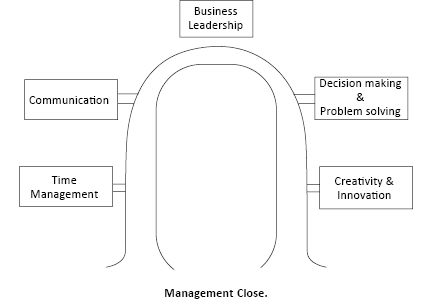
Over time in this book you can visit your five neighbours houses and learn all you can from their inhabitants.
There are also other nearby streets you will need to explore: for example, Information Technology, Financial Skills, Sales and Marketing, Production, Negotiating and Employment Law.
The reason you should invest time in getting to know your new neighbours is that managership is primarily about people , not things, numbers or money, as important as all three of these are. If you get the people dimension right, things and numbers and money have a way of sorting themselves out. You wont be disappointed.


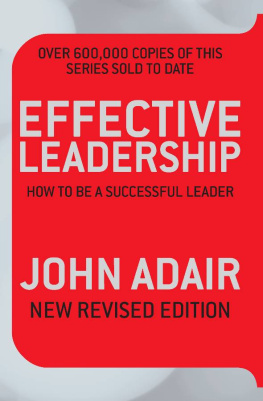
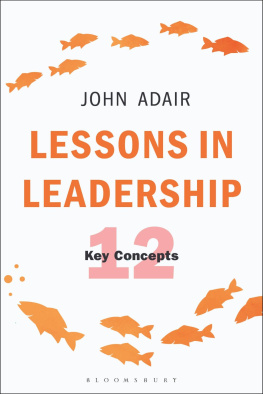
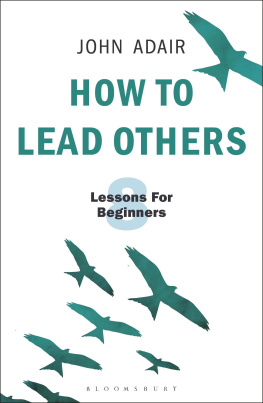
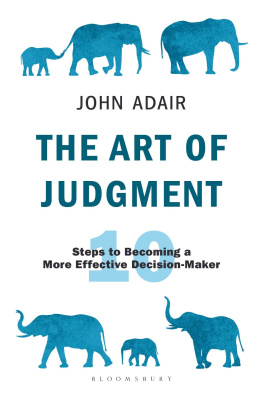
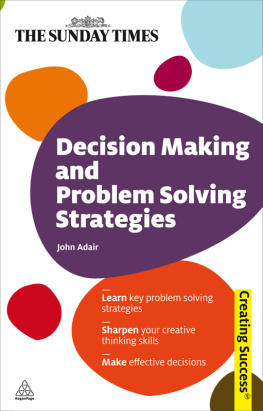

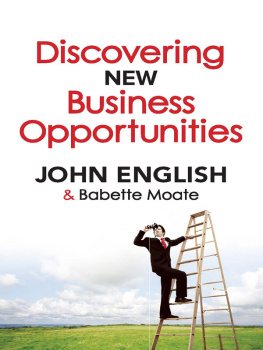




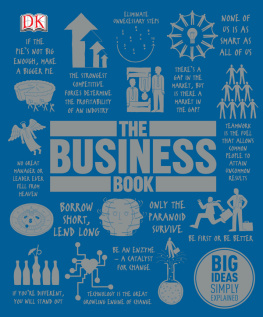
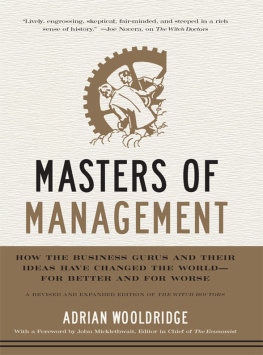

 Questions to get you thinking about the most information
Questions to get you thinking about the most information Key points to help you reflect on the Ideas
Key points to help you reflect on the Ideas A list of questions to help you put the Ideas into practice
A list of questions to help you put the Ideas into practice John Adairs 100 Greatest Ideas for Effective Leadership
John Adairs 100 Greatest Ideas for Effective Leadership John Adairs 100 Greatest Ideas for Personal Success
John Adairs 100 Greatest Ideas for Personal Success John Adairs 100 Greatest Ideas for Brilliant Communication
John Adairs 100 Greatest Ideas for Brilliant Communication John Adairs 100 Greatest Ideas for Smart Decision Making
John Adairs 100 Greatest Ideas for Smart Decision Making John Adairs 100 Greatest Ideas for Amazing Creativity
John Adairs 100 Greatest Ideas for Amazing Creativity John Adairs 100 Greatest Ideas for Being a Brilliant Manager
John Adairs 100 Greatest Ideas for Being a Brilliant Manager